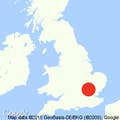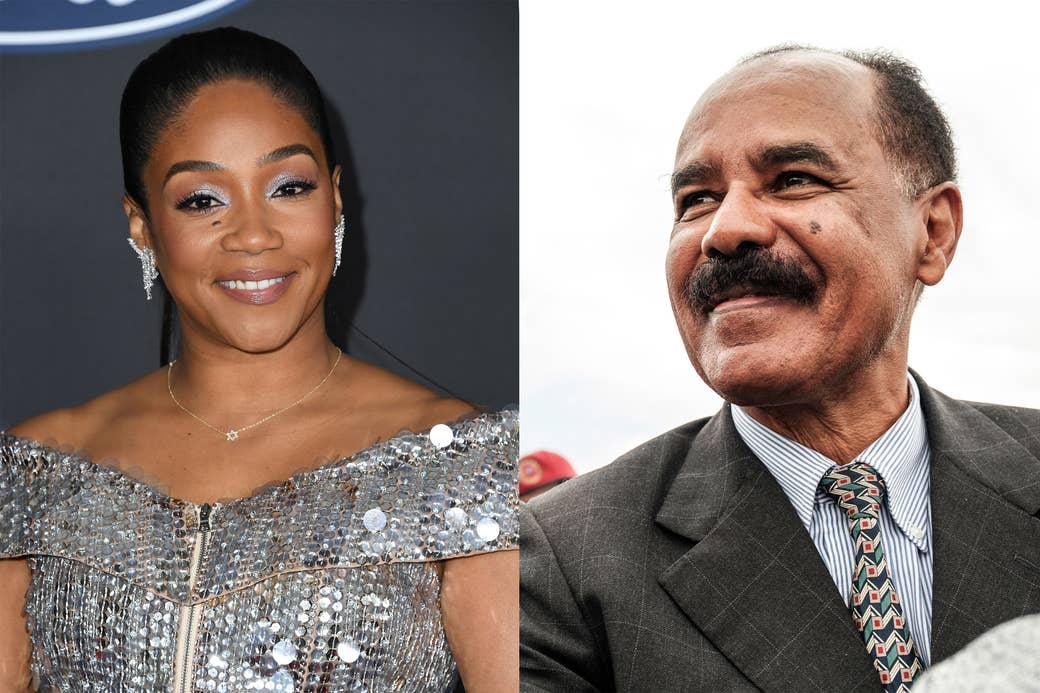
LONDON — Standing side by side in front of rows of cultivated plants, a man and a woman beam at the camera, in a photo that could come straight from a family holiday album. The woman on the left is instantly recognizable to millions of people: the actor, comedian, and author Tiffany Haddish. The man on the right is less familiar, but behind the warm smile and the friendly arm across Haddish’s shoulder is one of the world’s longest-ruling dictators, Eritrea’s Isaias Afwerki. Since coming to power 27 years ago he has been accused of ruling in a ruthless and brutal manner, as Eritrea earned the nickname the North Korea of Africa in the process.
What was Haddish, whose career is founded on making people laugh, doing embracing a man like Isaias?
Comedian/actress @TiffanyHaddish with #Eritrea president. Eritrean leaders don't own a private jet, a limousine or a mansion. Rather they live in a small houses as an ordinary citizen. They don't close streets when they pass. Most drive small private cars or use public transport.
The picture was taken in January 2018 when Haddish visited Eritrea, the country of her father’s birth, for the first time.
In May 2019, she returned to become a naturalized citizen, and left behind a copy of her acclaimed autobiography, The Last Black Unicorn, for Isaias. It was signed with the message, “my brother, my president, thank you for doing what you do.” Her visit coincided with Eritrean Independence Day.
Massawa is Beautiful this my view from my room
For many Eritreans in the ever-growing diaspora, the handwritten message confirmed their worst fears — that Haddish was inadvertently laundering the Eritrean regime’s reputation in the West by appearing to endorse its hardline leader.
In tweets and Instagram comments, Eritreans living outside of the country wrote to Haddish about the thousands of people, including children, imprisoned without trial, the underground prisons, the indefinite national service program likened to slavery by the UN where people are raped and tortured, the 5,000 people who flee the country every month. They begged her to speak out against the regime, not appear to endorse it.
Days after she gained Eritrean citizenship, Haddish responded: She agreed to talk about the situation in Eritrea with a group of young Eritreans mainly from the US in a Twitter DM conversation.
This is where I come into the story: I'm a Swedish Eritrean activist and freelance journalist based mainly in London. At the time the group chat was being set up, I was an undergrad student also working as a journalist alongside my studies. The young Eritreans setting up the group chat knew me from my Eritrean activism, so they asked me to join because they thought I could help convince Haddish to stop appearing to endorse Isaias and the regime.
Prior to the conversation, the young Eritreans shared Haddish on a Google Doc with all the main points they wanted to tell her about the nightmare inside Eritrea for normal people, including news articles and reports by the UN and Human Rights Watch. The young Eritreans looked forward to hearing how Haddish would respond. But what she said left them utterly crestfallen.
“Good morning y’all,” Haddish wrote. “I tried my best to keep my eyes open to chat with y'all but there was so much to read, I fell asleep on y'all sorry about that.”
Haddish doubled down on thanking Isaias: He was, in her view, a veteran soldier, and people should be grateful for veterans. He was building dams to bring electricity to Eritrea. And he had given her honey from his farm, which had made her grandma feel better. The young Eritreans were stunned.
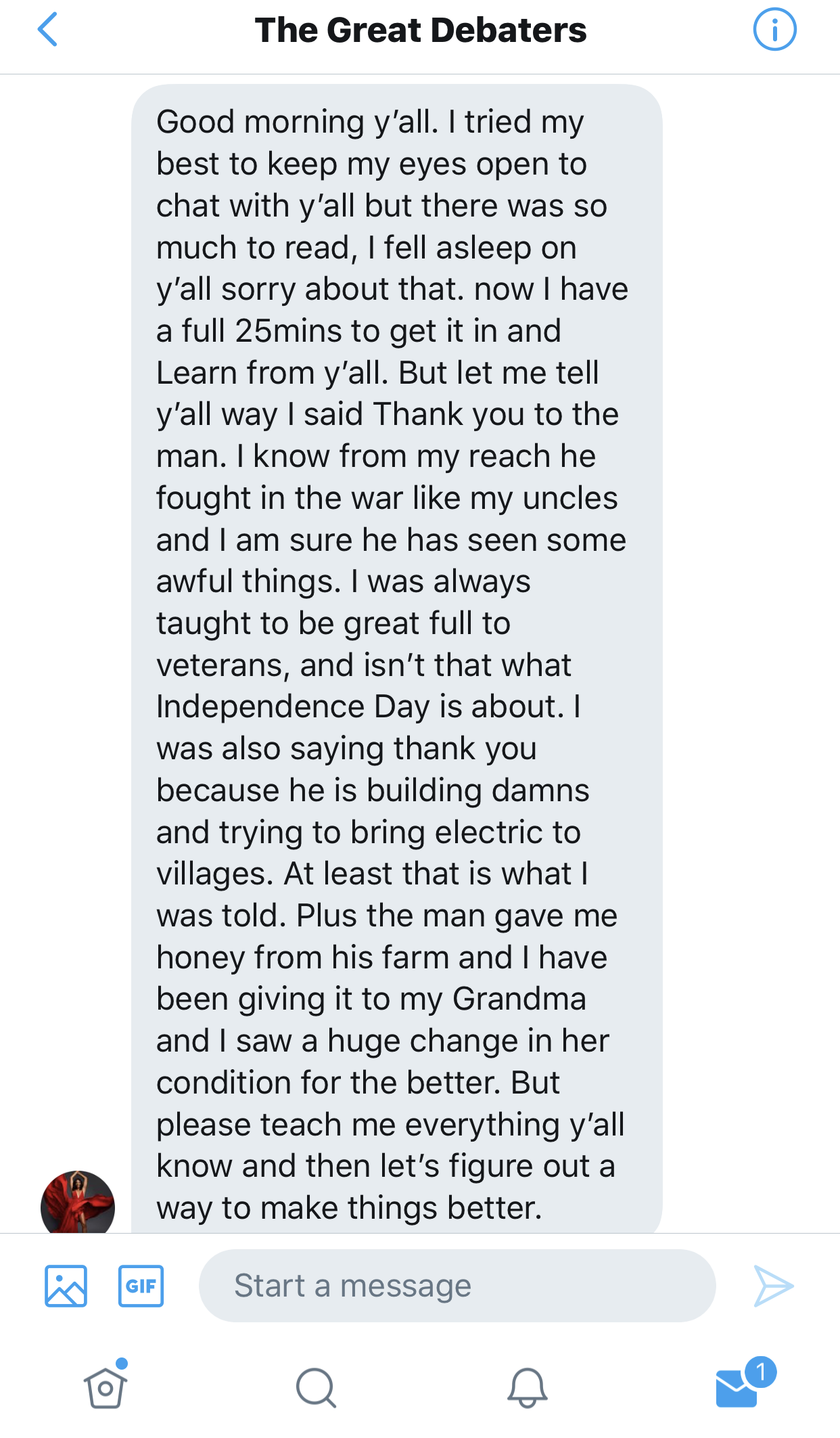
“I hated her response,” said Lidiya, a young Eritrean Canadian in the DM chat who asked that her surname not be used because, like many in the Eritrean diaspora, she fears reprisals against family in Eritrea by the regime as a price for speaking out.
“Shouldn't we honor the veterans he has killed and imprisoned as well? And what about the national service conscripts who are actually building the dams without any choice or adequate pay? I don’t even know what to say about the honey comment. That part left me speechless.”
BuzzFeed News contacted Haddish’s managers and publicist via email prior to publication of this article but received no response to a request for comment and a series of questions. A woman at her managers' office in Los Angeles, when asked for a comment for a BuzzFeed News story, said “no, thank you,” and hung up. Additional emails to Haddish’s publicist went unanswered.
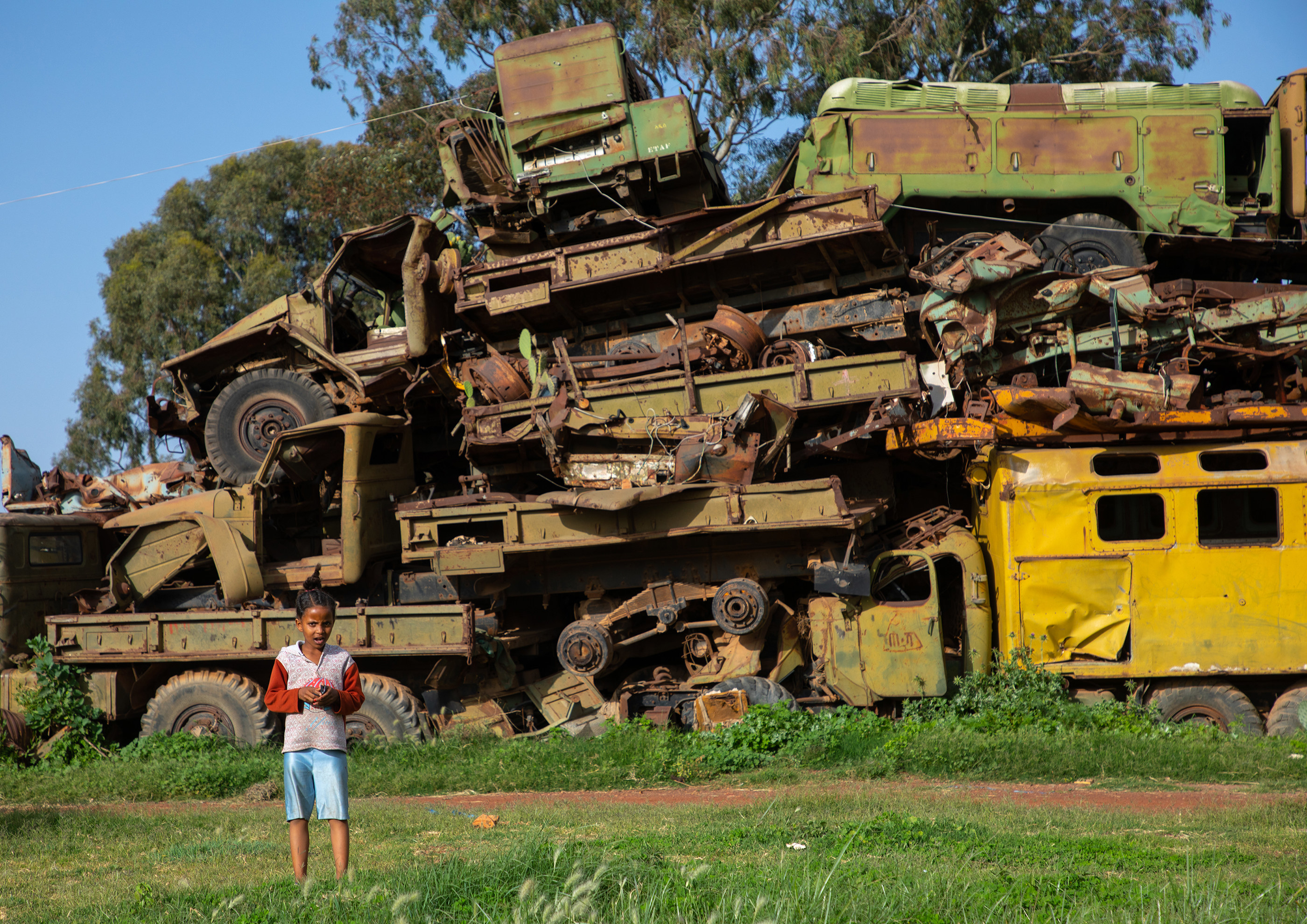
Eritrea, home to about 5.7 million people, is one of the world’s newest countries. After a 30-year war with Ethiopia, Eritrea achieved independence in 1991; as many as 100,000 people died in the conflict. Then, between 1998 and 2000, Eritrea and Ethiopia fought a particularly bloody war, but a peace agreement was not signed until 2018, as relations between the neighbors finally showed signs of thawing. Last year, Ethiopian Prime Minister Abiy Ahmed was awarded the Nobel Peace Prize for working to end the two-decade-old conflict.
Isaias, a former military commander, has been Eritrea’s president since its independence. Eritrea is a totalitarian one-party state, with no independent judiciary or media. Isaias has never stood for election and has refused to implement the 1997 constitution and hold elections. Human Rights Watch says Eritrea has one of the world’s worst records on human rights. For eight years running, Eritrea was ranked at the bottom of the Reporters Without Borders’ press freedom index. A 2013 report from Amnesty International said there were at least 10,000 political prisoners in Eritrea, many of whom were Isiais' former comrades. National service is compulsory from the age of 18 and mainly involves working for next to nothing on public services, such as intensive construction projects. This national service is indefinite and is one of the main reasons thousands of people try to flee the country every year — some estimates say up to 12% of the country’s population has fled. During the European migrant crisis, Eritreans were the second-largest group of people seeking refuge, behind only Syrians. For years, Isaias, 74, used the constant threat of war with Ethiopia as an excuse for the harsh conditions within Eritrea, but since the 2018 peace deal was agreed, there have been no signs of things improving. At other times, the Eritrean government has dismissed the authors of critical reports by the UN and NGOs like Amnesty International and Human Rights Watch as wanting to achieve regime change in the country. Internet access is extremely limited in Eritrea, with only 2% of people able to get online, and criticism of the regime from within Eritrea is all but nonexistent — a 2019 report from the Committee to Protect Journalists called Eritrea the most censored country in the world.
All of the above makes Haddish defending Isaias and the Eritrean regime unbelievably surreal. Her late father was an Eritrean refugee from an Eritrean Jewish family, but he was largely absent from her childhood. Because she was not brought up with the knowledge of Eritrean history or traditions, many Eritreans living outside of the country initially gave Haddish the benefit of the doubt that she was not aware of the country’s abysmal human rights record.
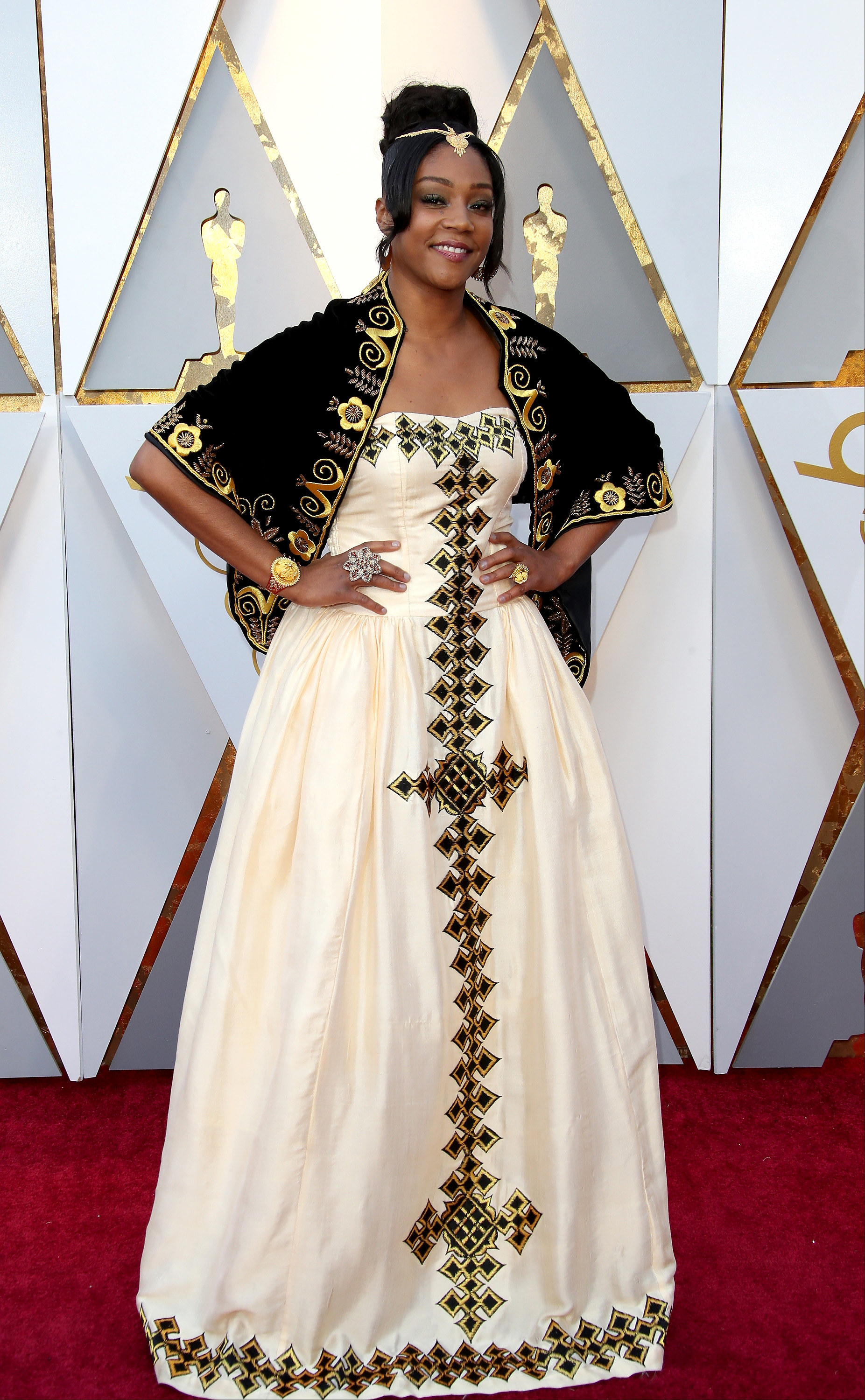
After all, Haddish embracing Eritrean culture was something to be celebrated by the Eritrean community: They cheered when she wore a traditional Eritrean dress on the red carpet at the 2018 Oscars, when Haddish said she was “honoring her fellow Eritreans.”
Many Eritreans living outside of Eritrea were also understanding of how important discovering your roots could be for an individual’s identity, and aware of how this could potentially hinder someone from looking at a situation critically. When Haddish made her first trip to the country in 2018, she did so to bury her father and connect with her extended family, whom she had never met before.
Haddish told the state-run Eri-TV, the only TV station in the country, “I was trying to figure out, Who am I? And now I have a way better understanding of who I am and why I am on this Earth.”
But it was Haddish thanking Isaias on her visit in 2019 that made Eritreans decide to take more proactive action to speak to her about the realities of the regime. Many of the tweets criticizing Haddish used the #IsSheReady4Eritrea hashtag, referencing her signature #SheReady hashtag and She Ready! From the Hood to Hollywood comedy special and tour.
“I remember thinking, Thank you for what? Thank you for running all our youths out of the country? Thank you for locking up our brightest minds? Thank you for destroying our country?” said Lidiya, the young Eritrean Canadian.
American actress @TiffanyHaddish to Eritrean dictator 'thank you 4 what you do', thanking him for jailing 10 000+ prisoners of conscience , for the disappearance of thousands Eritreans, for the assassination of our war veterans, or the national slavery of thousands? #Shame https://t.co/IIgRHIG5dd
In the group chat with the young Eritreans, Haddish deflected criticizing Isaias by constantly comparing the situation in Eritrea to the US.
“Ok I see what y’all talking about so basically what y’all saying is Eritrea is right now what America was in the beginning. except they are enslaving there own people instead of people from another land. Oh wait America did enslave The natives. And these people are just held some where being sexually abused and made to work for free. With no health care and Necessities. Sounds like the US prison system or the Internment camps they have for illegal immigrants here in America where they are separating children from there parents,” she wrote.
“I mean shit it just sounds like history repeating itself. American history is happening in Eritrea but not as bad or maybe worse. 😐IDk. What can we do to fix this?"
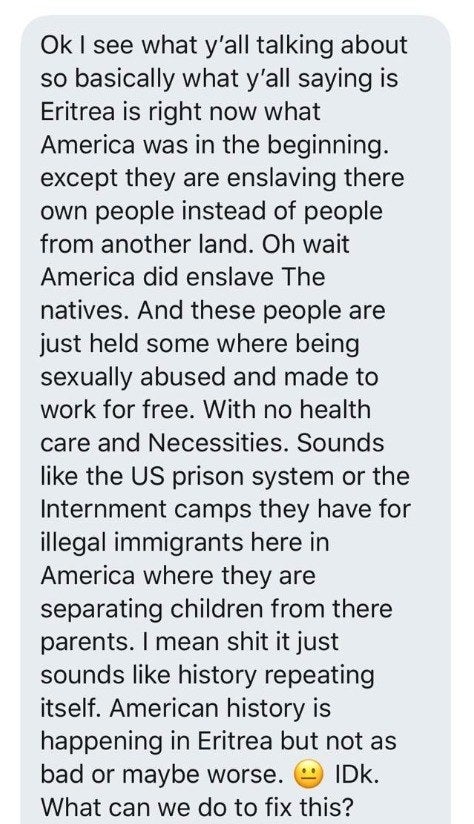
Her reasoning confounded people in the group chat: If Haddish could see parallels between the two countries, why was she protesting the situation in the US but making allowances for Eritrea?
At another point in the conversation, the bulk of which took place over one day, Haddish suggested flying in other celebrities to visit Eritrea to “show how beautiful the land is how beautiful the people are and how hard the struggle is.”
But this was the original problem, as the activists on the DM chat saw it.
The Red Sea in Massawa
“We don’t need celebrity visits that will only be good PR for the dictator, we have solutions and have told her about them for months,” said Yodit Araya, an Eritrean American organizer in the Yiakl movement, which means “‘Enough”’ in Tigrinya, one of the national languages of Eritrea.
The group chat was set up on the premise that Haddish was willing to learn about the situation in Eritrea, and during the exchanges she repeatedly asked what could be done to help. “what can we really do as a Group to make things better?” she wrote. “Come on y’all what can we do? I am only one person.”
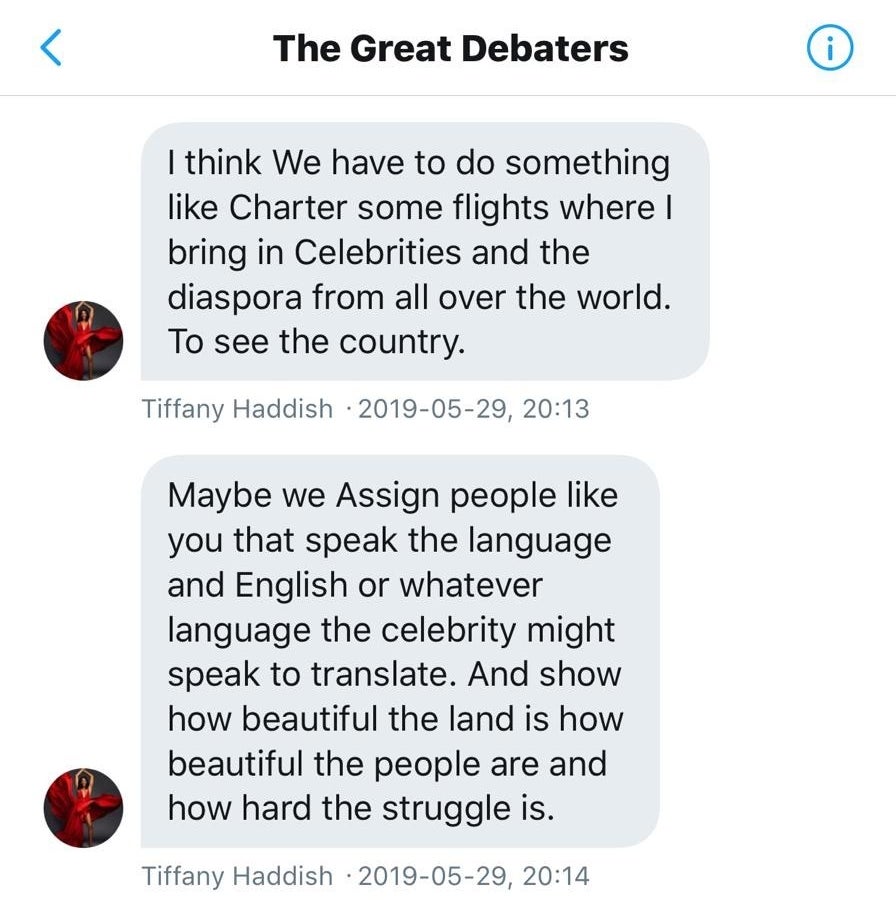
But the young Eritreans were left frustrated by what they perceived to be her refusal to engage with their ideas and suggested solutions.
“Just remember I am only a human and comedian. I can only do so much for Everybody else Everything starts with self,” Haddish wrote. “Believe me when I say! I will make more change in the world by following my Inner guidance system and playing well with others.”
Someone in the Twitter DM chat shared the story of Ciham Ali, an Eritrean American born in Los Angeles — like Haddish — whose father was a former government minister who left the regime. Seven years ago Ciham was caught at the Sudanese border at age 15 when she tried to flee the country, and has not had any access to the outside world since then. She has never been charged with a crime or faced trial.
But Haddish brought the discussion back to the US. “I feel bad for Ciham,” she wrote. “I Also feel bad for my cousin Deeanna That did 8yrs and was only sentenced to 5 at the age of 18. When we can figure out what we can do about this we will get closer to free others that deserve to be free. Let’s put our minds together and think.” It was her final message in the group chat, which ended without resolution.
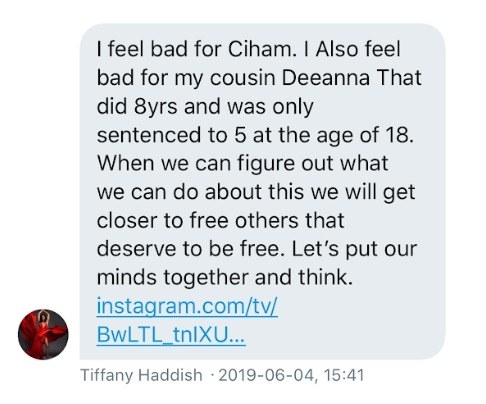
Months later, there was more disappointment for the young Eritreans when Haddish questioned how she could “tell someone what to do in their house. when at my house (America) we got Facilities with Fathers, mothers and children locked up. And more slaves than ever in the history of America. I don’t know everything going on over there.”
@alextfoto @eyderp @PaulSchemm @TomGardner18 @GetachewSS @WanjohiColetta @MaggieFick I did and I find it funny because How can I tell someone what to do in their house. when at my house (America) we got Facilities with Fathers, mothers and children locked up. And more slaves than ever in the history of America. I don’t know everything going on over there.
Then in an interview with the Hollywood Unlocked show last December, Haddish criticized Eritreans for attacking her without taking any action themselves.
“Y’all can keep telling me all this stuff, but what’s the action? How do you fix it? Don’t come at me with all the shenanigans, rararara, but no damn action,” Haddish said. “Get out of here.”
She went on to defend Isaias and the Eritrean authorities once more.
“I get what that president, I get…look...everybody that’s in office over there, that’s into politics, when you do your research, all of them fought in a war, OK, all of them have fought, they are all freedom fighters, they all fought for their freedom. They have watched their friends die in front of them. So I don’t know about you, but if I’m in a war and I feel like, Oh, if I let this happen or let that happen we’ll be back at war, you’re going to do whatever it takes to defend and protect your land,” Haddish said.
“They were trying to rape that land,” she continued, referring to Ethiopia’s actions in the war. “And they messed it up, they raped the people, they killed a lot of people. So of course he’s going to be a little, maybe overly doing things... I don’t agree with everything that they do, I don’t agree with everything that’s done here in America.”
But Araya, the Eritrean American activist, said that to Isaias and his regime, the war with Ethiopia was "just an excuse, and besides, a peace deal was made more than a year ago, so why has he not changed anything?”
She described Haddish’s comments in the Hollywood Unlocked interview as “extremely disrespectful to the backbreaking work of our activists who have been fighting this regime for decades, most of whom still are imprisoned because of their work.”
“As an immigrant, I really looked up to her and admired how she, despite all the hardship she had gone through, managed to succeed. But I was hoping she would use her success to go back and help the underdog. I wouldn't think she would turn her back on the underdog.”
Araya said Haddish had failed to grasp the impact someone with such a big profile could have, especially at a time when Eritrea is trying to present a new face to the world and avoid internal reforms.
“She is really famous in the US, she has huge influence. Eritrea is the most censored country in the world — the regime owns the narrative and has made the crisis unknown. Her support is not just symbolic. It’s more than just a picture or innocent visits. She is legitimizing him, whitewashing him,” Araya said.
“We are against her, as a superstar with the platform she has, normalizing our dictator.”●

